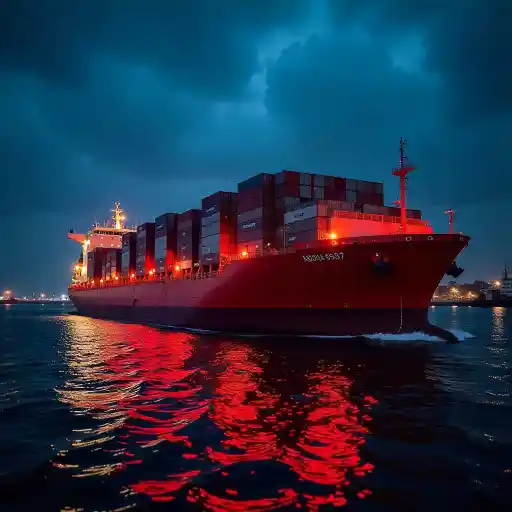Ambuja Cements Ltd, owned by the Adani Group, is expected to place orders in China within the next two weeks for building two cement carriers and eight clinker carriers, in a deal estimated at about ₹2,500 crore. The company had earlier explored building the ships in India but dropped the plan after assessing capacity and delivery constraints at domestic shipyards.
Team in China to Finalise Shipyards
A team from Ambuja Cements is currently in China evaluating shortlisted shipyards. Sources say the announcement could come in 10–15 days. While it is not confirmed whether Adani Ports MD and Ambuja Cements Director Karan Adani’s ongoing visit to China is related to the deal, industry watchers have taken note of a LinkedIn post from Capt Swanand Patankar, Deputy Head (Shipping and Ports) at Ambuja Shipping Services, showing him alongside Karan Adani with the caption hinting at details soon.

Why China Over India
Ambuja Cements had assessed shipyards in Indonesia, the Philippines, Vietnam, and India before choosing China. Industry sources say Indian shipyards focus mainly on naval and smaller vessels, with long delivery timelines. Cochin Shipyard, while highly capable, specialises in smaller ships and lacks the facilities for large-scale builds. In contrast, China leads the world in shipbuilding output and can deliver large vessels faster.
Details of the Planned Fleet
The company is reportedly planning to order 38,500-tonne Handymax cement carriers at about ₹400 crore each, and 9,200-tonne clinker carriers at roughly ₹200 crore each. The clinker carriers—dubbed Sanghimax—will be designed to access Sanghi Industries Ltd’s integrated cement plant in Kutch, Gujarat. The plant, part of the Adani Group, has a capacity of 6.1 million tonnes of cement and 6.6 million tonnes of clinker.
Expanding Coastal Transport Capacity
Currently, Ambuja Cements operates 11 cement carriers for coastal distribution. Each new clinker carrier will transport over three times the load of conventional shallow-draft vessels, improving cost efficiency. The adoption of larger ships is expected to transform the group’s cement logistics model.
Integrated Logistics Strategy
According to industry experts, coastal shipping offers significantly higher profitability than road or rail transport. Adani’s strategy is to combine ships with trucks for end-to-end delivery, reducing reliance on long-haul rail and creating a tightly integrated, hard-to-match supply chain. Cement transported in bulk by sea is bagged at the destination port and dispatched by truck to customers, cutting costs and improving delivery times.
A Step-Change in Cement Logistics
Shifting more cement movement to coastal shipping is seen as a game changer for Adani’s cement business. The strategy could lower logistics costs, improve operational flexibility, and strengthen the company’s competitive position in India’s growing cement market.
